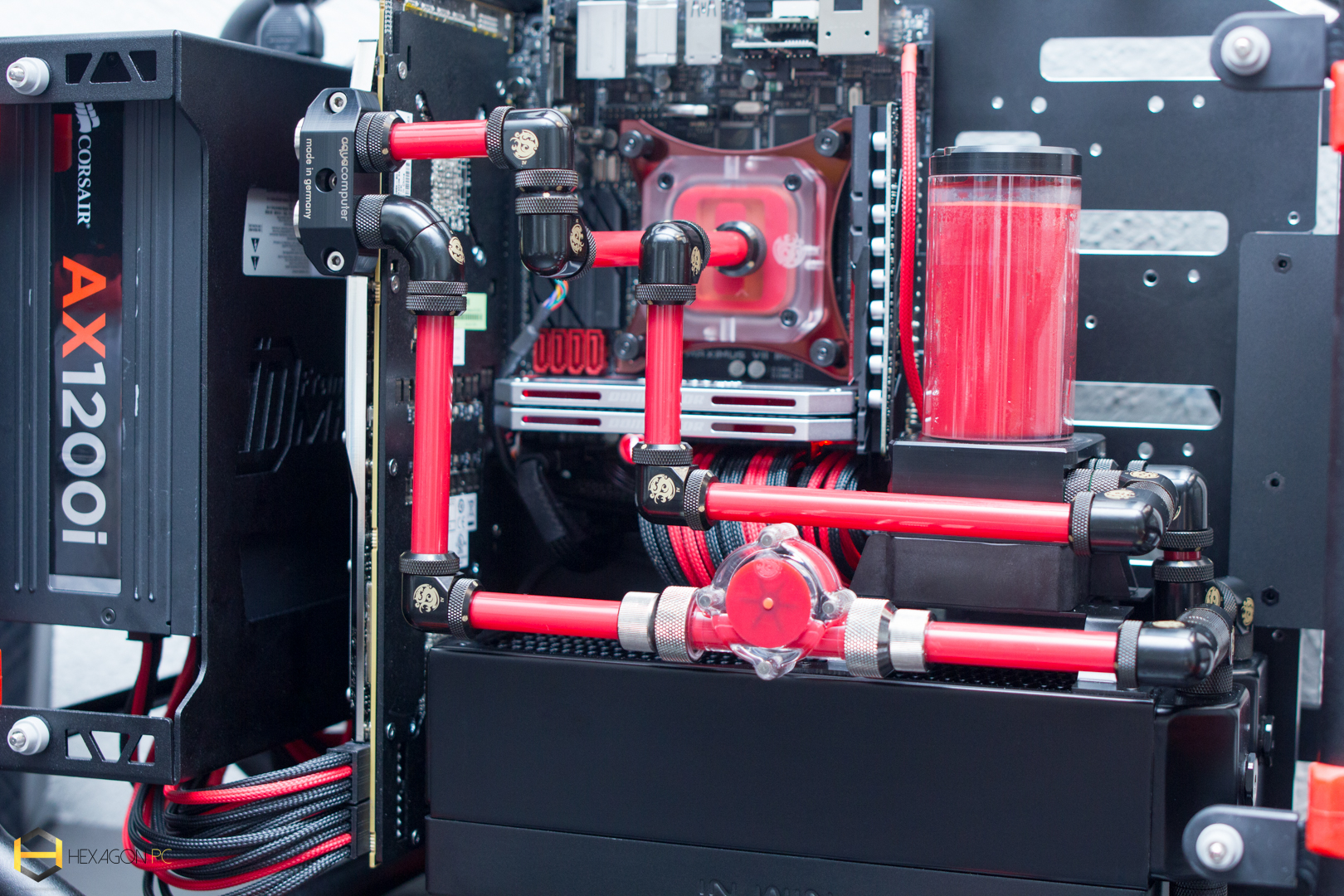
Scrolling through photo after photo, I see mastery. Every angle shows weaves of paracord snaking around acrylic tubes and liquid-filled reservoirs. I’m looking at computers, but not just any computers. These PCs are hand-crafted with love and care and a fastidious attention to detail over dozens of hours. These are the works of professional PC builders, one-time hobbyists who've turned a passion for rig-building into a way to make money on the side, or even launch a business. In some corners of the Internet, they're minor celebrities, famous for the care and creativity they put into their builds. But taking the leap from community hero to true professional, making a living building custom PCs, is challenging.
I wanted to know what that struggle has been like for professional builders. How did they start building PCs for clients? How did they make names for themselves? And how do they hope to spin success into a full-time business?
Building towards something bigger
It started simply enough: I wanted to build a new PC, my first true gaming PC. I reached out to a friend on Facebook who was into high-end motherboards and processors. We first met at a local coffee shop, where I knew him as the guy who would always have his guitar with him. He was also, I learned, a very talented PC builder.
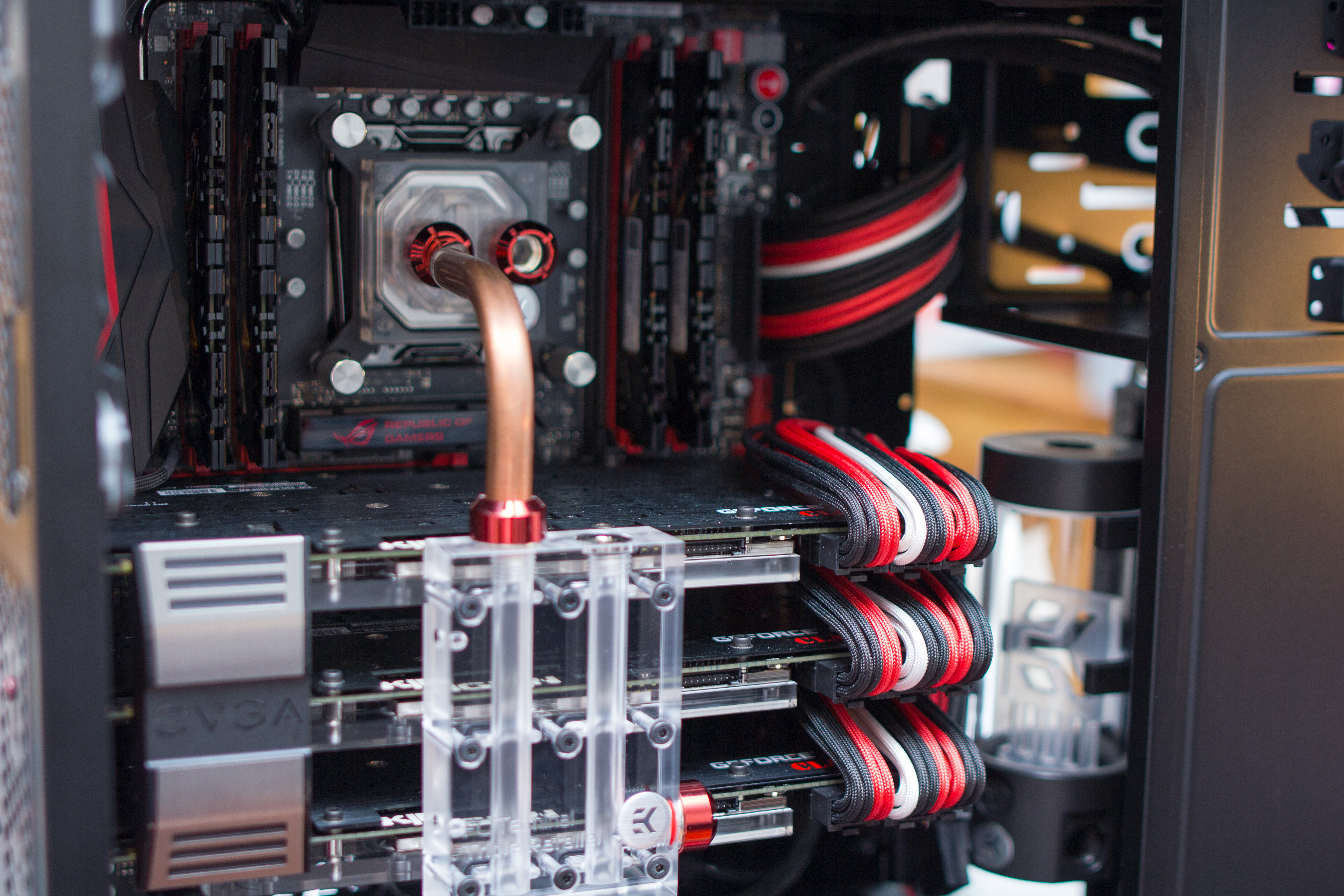
As we got to chatting over Facebook, Blake “Lavins” Andes started showing me some of his albums on photosharing service imgur. I was stunned by the contrasting colors and keen sense of aesthetics. Cables were neatly organized, but not in a way you’d normally expect. There weren’t any zip ties clumping wires together. All cables were laid out in neat rows, curving around other components, snaking their way to the power supply. I really had no idea how serious PC building was, or could be, until that moment.
Andes showed me some of his posts on popular PC subreddits like Cable Management, Watercooling, and Gaming PC. Users flooded his builds with praise. "This is like porn to me." "God tier." "Sploosh." Since making a name for himself on Reddit, he's since launched a website, HexagonPC, to showcase custom builds and cabling. But how did Andes get to this level of niche internet fame?
“I’ve been building computers since I was like 12,” said Andes as we sat in his new condo near the medical district in Houston. Jump forward to after college: Andes is 26, and started getting into intricate cable management. He describes it as turning a “whole mess of wires inside of a PC into a work of art.”
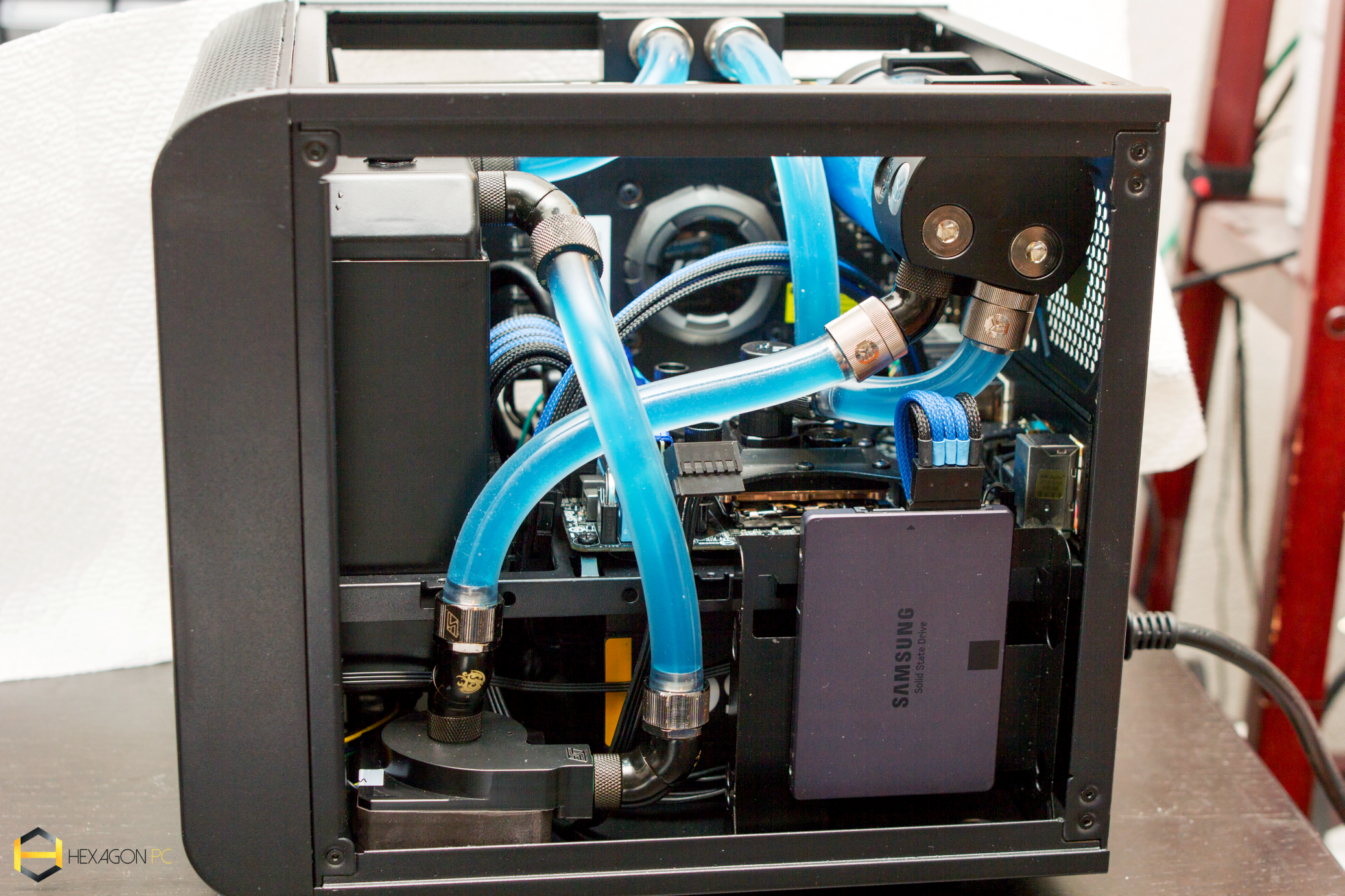
A lot of cable management comes down to making custom cables that are perfectly sized. Hardware manufacturers will usually include a one-size cable, that’s more often than not too long for the case it’s being put in. For dedicated PC enthusiasts, simply making a shorter cable doesn’t cut it: it also has to look beautiful, and that’s where cable sleeving comes into play.
The biggest gaming news, reviews and hardware deals
Keep up to date with the most important stories and the best deals, as picked by the PC Gamer team.
Once Andes found himself with disposable income, he really wanted to make cables like the ones he would see on Reddit. “I probably spent, in that first few months alone, close to $500 in paracord, cutters, strippers, crimpers, all this other stuff,” Andes said. He learned how to make custom cable sleeves via online tutorials. Initially, it was something he did for himself. As he shared his cabled creations on Reddit, many took notice of his talent. Before he knew it, Andes was buying a website and purchasing “hundreds of dollars worth of connectors and products and spools of wire.”

Other professional PC builders didn’t start out quite as modestly as Andes did. 21-year-old Hassan Alaw runs two companies, V1 Tech and Red Harbinger, out of Dallas. The former creates custom GPU acrylic backplates and the latter makes some insane PC desks as well as other accessories. But Alaw, too, got his start building PCs for himself. His big break happened when he took his latest PC to Quakecon 2013. “I entered a mock contest for the first time, I got second place, after that I got sponsors, and I got a lot of credit for that, and it’s just been kind of growing ever since,” he said.
And for Adam “U.P.C.” Birli, owner of Ultimate Personal Computers, things really changed when he needed to think of something to make for his high school senior project. He decided to “knock two birds with one stone” by building a PC based on what he learned from a magazine. From then on he was hooked on the scene. He started making waves on forum Overclock.net with his building and sleeving skills and found there was a demand for his talents.
“It was exciting,” said Birli, the first time someone reached out to him to make a custom build. Just like Andes and Alaw, he described starting off as “just building for myself or for friends,” just something that was a passing hobby. Now he’s turned that hobby into a business.
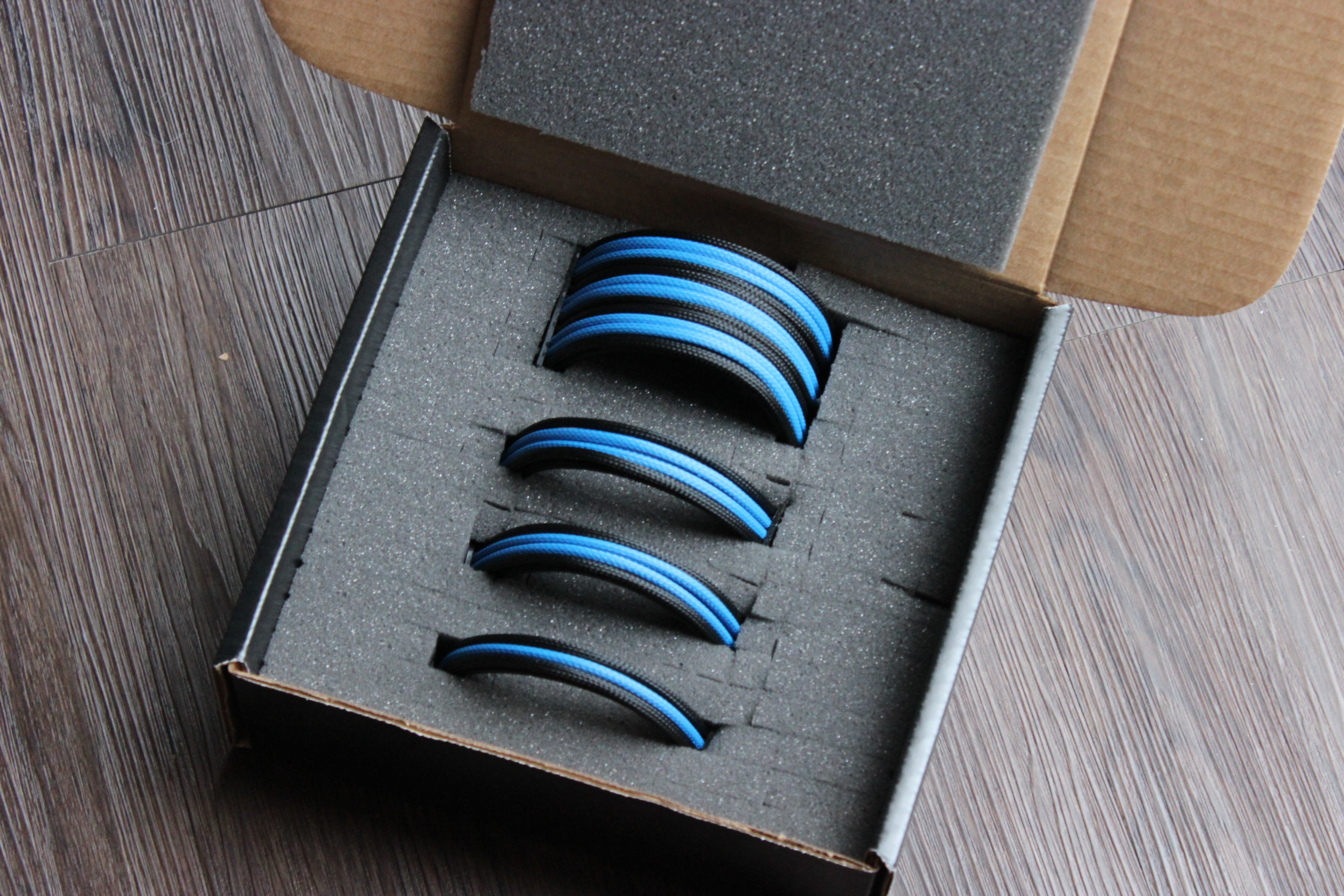
But starting your own business in a relatively niche market isn’t the easiest thing to do. For both Andes and Birli it’s not a full time thing, but a business supplemented by full time jobs. Andes feels that “it’s not a full time gig for most [professional PC builders]. It’s not stable, it’s very volatile, this market. It's a luxury for a lot of people.”
It may be a side business for them, but it’s still hard work. “I put 80 hours plus for more of the higher end builds,” said Birli. He and Andes both balance a 40 hour work week with a family, dedicating any free time towards making custom cable sleeves and PCs. Some weeks are busier than others for Andes. “Some days I’ll work four hours, some days I’ll work six hours, I’ll work until two in the morning, three in the morning,” he said. “Some days I don’t even sleep.”
Unlike Andes, who’s uncertain of a full-time future with PC building, Birli does want to make Ultimate Personal Computers his full-time thing. “Ideally that’s where I want to be,” said Birli. “Right now everything we do just get reinvested back into the company.” He does feel that as the demand for custom cabling increases, it could bring more regular sales that can support him and his family.
Amongst professional builders, interestingly, there isn’t a race to the bottom when it comes to pricing. This is because many builders find themselves on different parts of the Internet. Andes has great name recognition on Reddit, while Alaw sees a lot of his traffic coming from Instagram, and Birli has a base over at the Overclock forums. For Andes, although it’s hard to tell how many professional builders are out there, he estimates that “it’s over 30 that are professional enough to be hired on and have great looking photography.” When I asked Andes if there are too many builders and not enough clientele or the other way around, he felt it was the other way around. It’s “whoever they see first,” meaning that if a Reddit user finds Andes’ album, that person will most probably contract Andes without really digging through other forums or social media comparing builders.
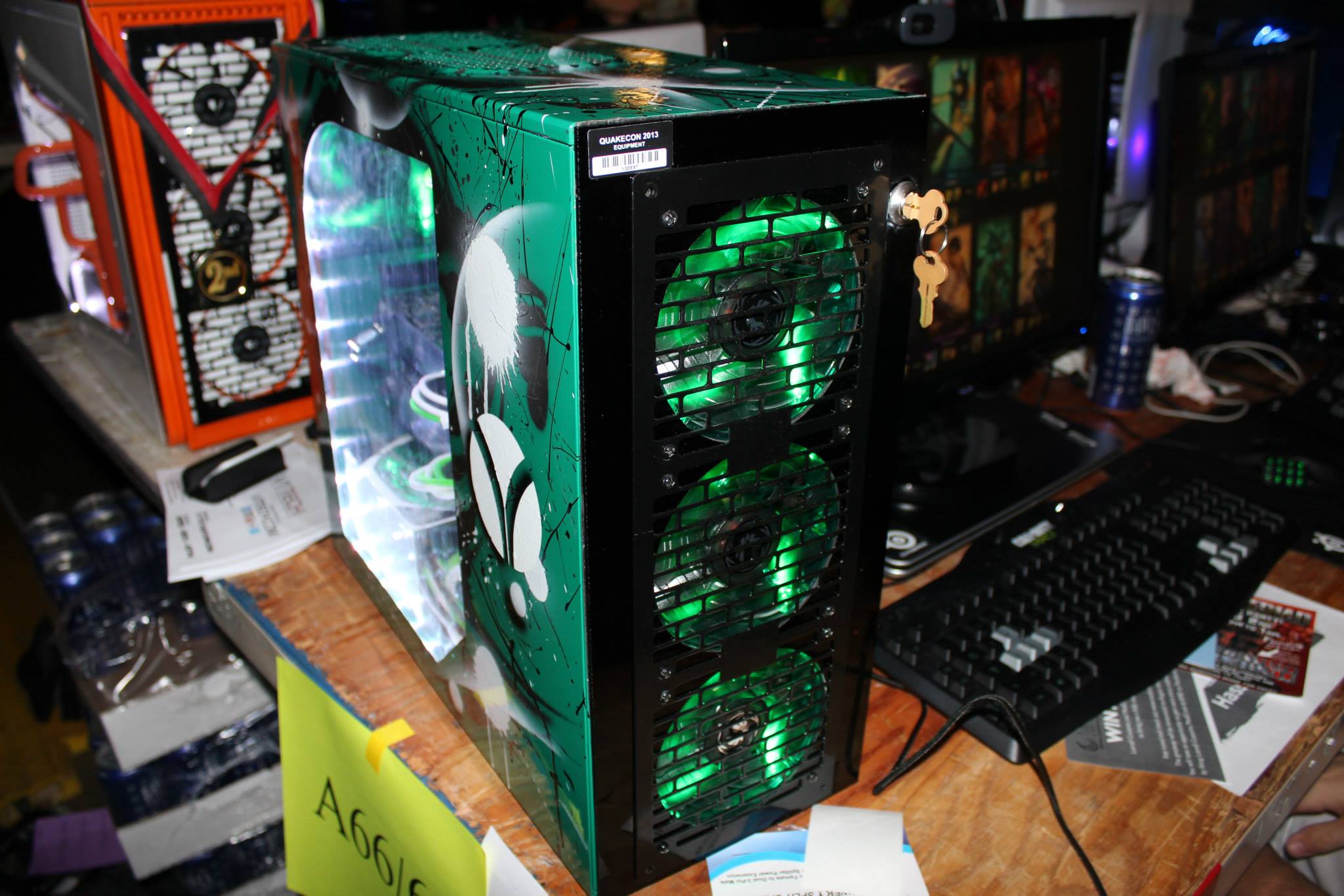
And then there’s the world of sponsored PC builds. Andes and Alaw have been hunted down by major hardware manufacturers to create custom rigs to show off their new wares. Some of these companies include Corsair, Kingston, and Gigabyte. Representatives from these companies reached out to Andes and Alaw after seeing their work online. Their builds would be taken around to various trade shows worldwide or become a showpiece inside a corporate office. And the companies take their advice seriously. Andes recalls getting phone calls from Taipei asking for insight on how to improve a certain case. In a way, it’s kind of the ultimate form of recognition. If their regular clientele are aristocrats, willing to fund the creation of a lavish work of hardware artistry, then these companies are kings.
With all the hours and sacrifice that go into creating an epic PC, what do the clients think of their commissioned purchases? One of Andes’ clients, Gabriel, described working with the builder as a “wonderful experience.” He sifted through the various builders and chose Andes due to his “experience,” “knowledge,” and “level of detail.”
Another one of his clients, Zi, found the level of communication to be exceptional. Andes “would constantly be updating me with snapshots and asking me ‘What do you think?’ or ‘How do you like it so far?’” Another example was when Andes recommended that the two take a different approach to the color scheme than what Zi originally asked for.
“Initially, the build was going to be a ‘Noctua’ theme, but it was actually Blake who first honestly stated along the lines: ‘Hey, I don't like how it came out, gonna try to give it another go.’ I gotta say I'm very glad we changed the color theme completely as it looks much much better than I imagined. So he decided to start again from scratch! That's the type of perfectionist Blake can be and that moment made me realize this guy is the real deal.”
Birli received equal praise and regard when I reached out to one of his clients, Pat. He said that Birli was “very professional upon contacting, he was very fast with his response,” and commented on his professionalism when he sent his PC back for upgrades.
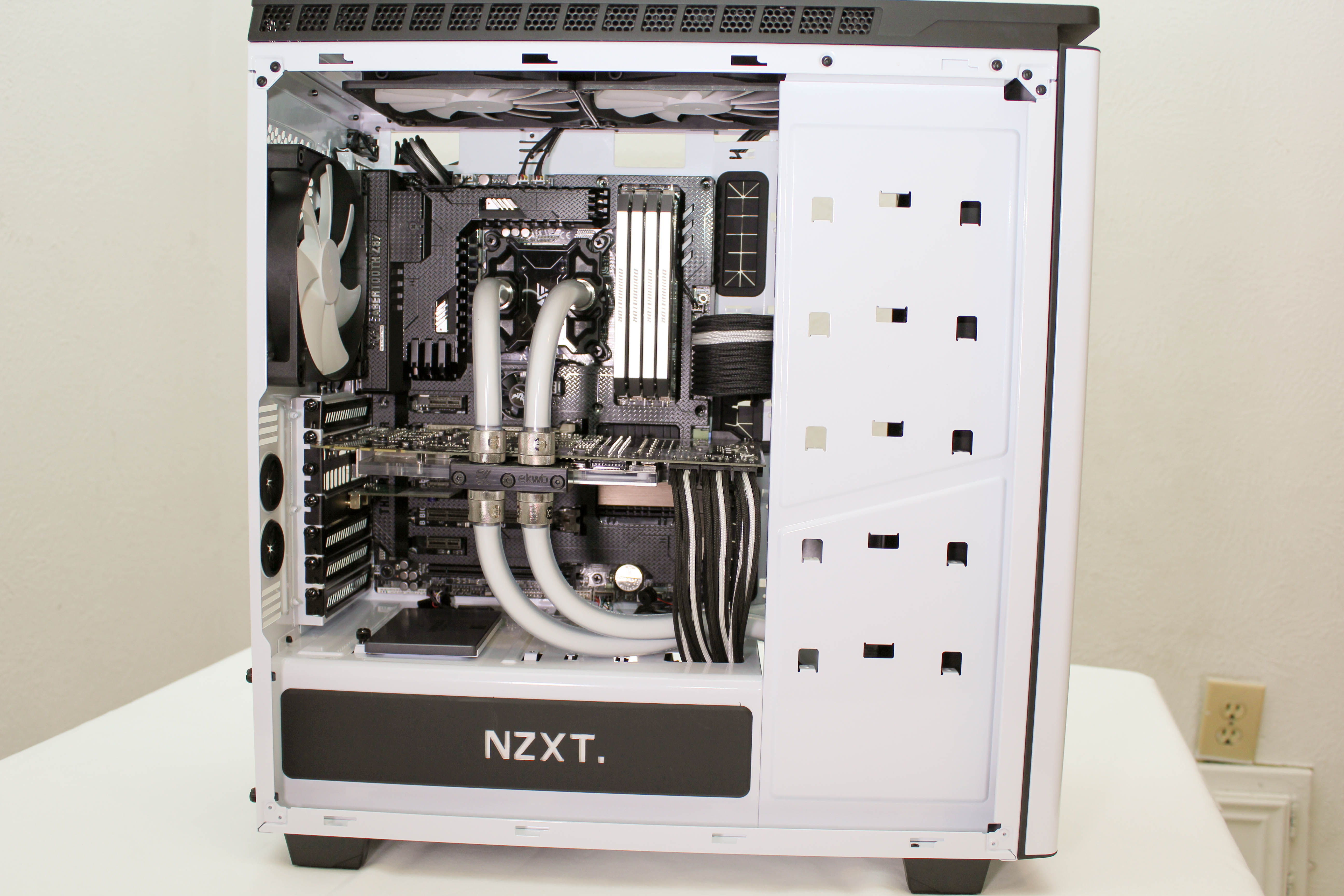
By their bootstraps
Minus the long hours and managing time between work and family, these professional builders are really doing what they love. “I have computers in my head constantly,” said Andes as he recalled his typical workday. And Andes clearly wants to build towards something greater. He wants to go beyond building custom PCs and actually help in developing them. He feels that he would be able to achieve much more if he could work with a manufacturer, telling me that with a “near unlimited budget” and “access to the most exclusive parts” he could help create the best gaming cases this side of the western hemisphere.
“When I was six years old, I built my first computer. It’s always been a natural thing for me,” recalled Alaw. He worked at Micro Center through high school, and now he’s hard at work trying to take two companies off the ground. Most 21-year-olds are just trying to get through college. Prospects seem good: he’s already gotten recognition from Linus Tech Tips and others. Meanwhile, Birli’s builds have received accolades from publications like Computer Power User and Maximum PC.
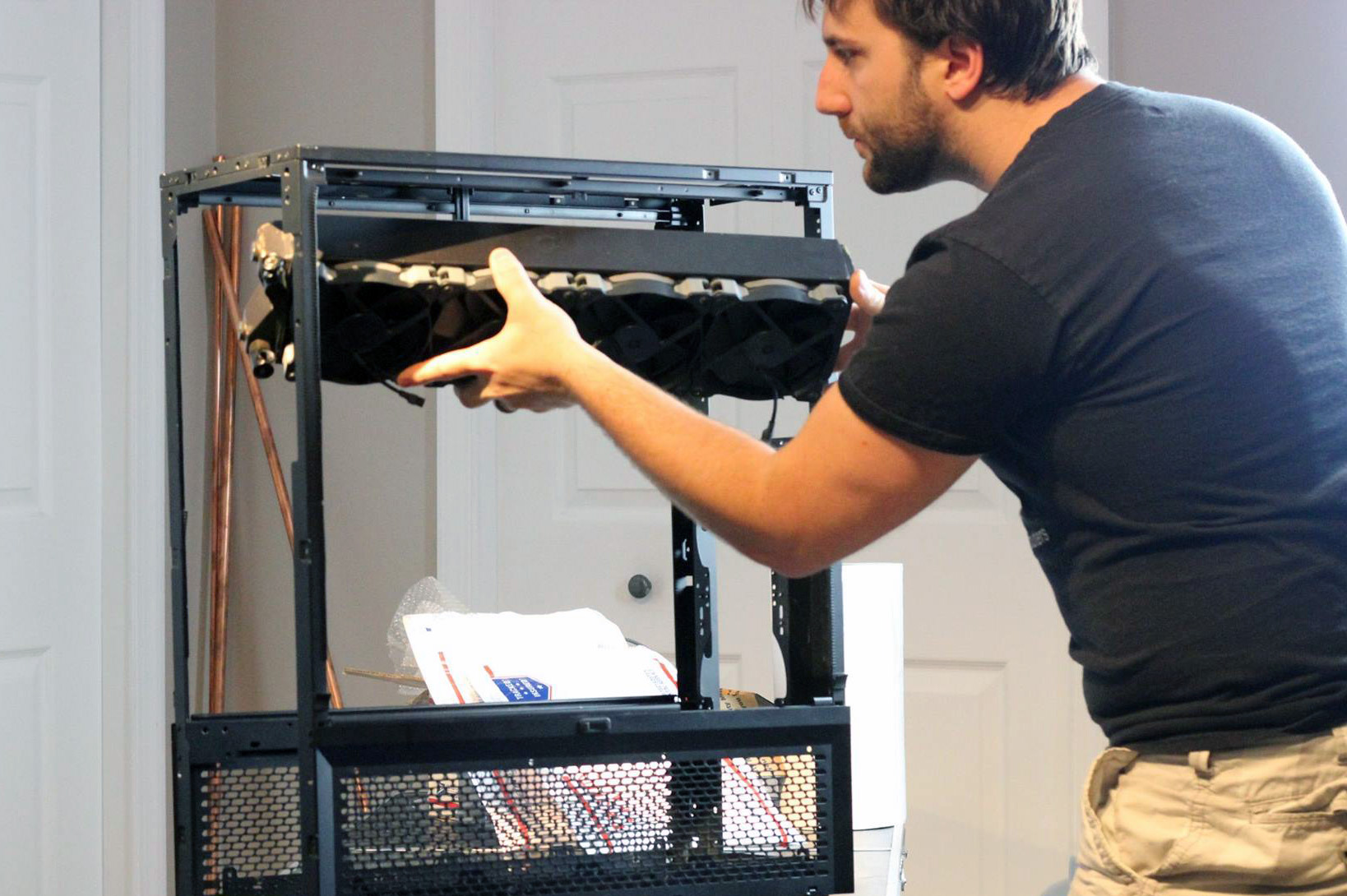
Custom computer building is definitely a high-end market for PC gamers willing to spend the extra cash. “We don’t get a lot of the lower budget builds,” recalled Birli, saying that most come in with “bigger pockets and a lot bigger expectations.” It’s a niche market for buyers as interested in aesthetics as power.
And sometimes the financials don’t have to make sense. Sometimes you just have to ignore the numbers and pursue your passions, because it’s your passions that give you purpose.

